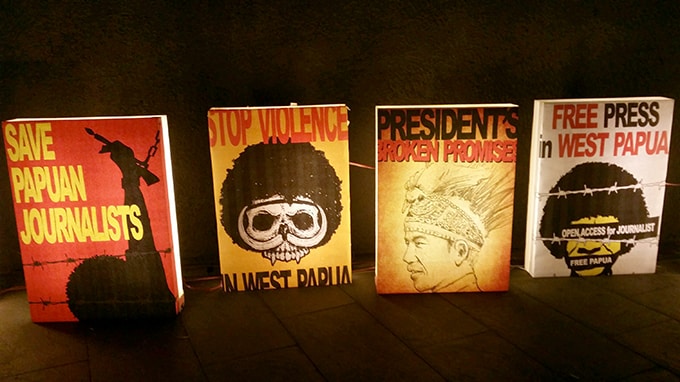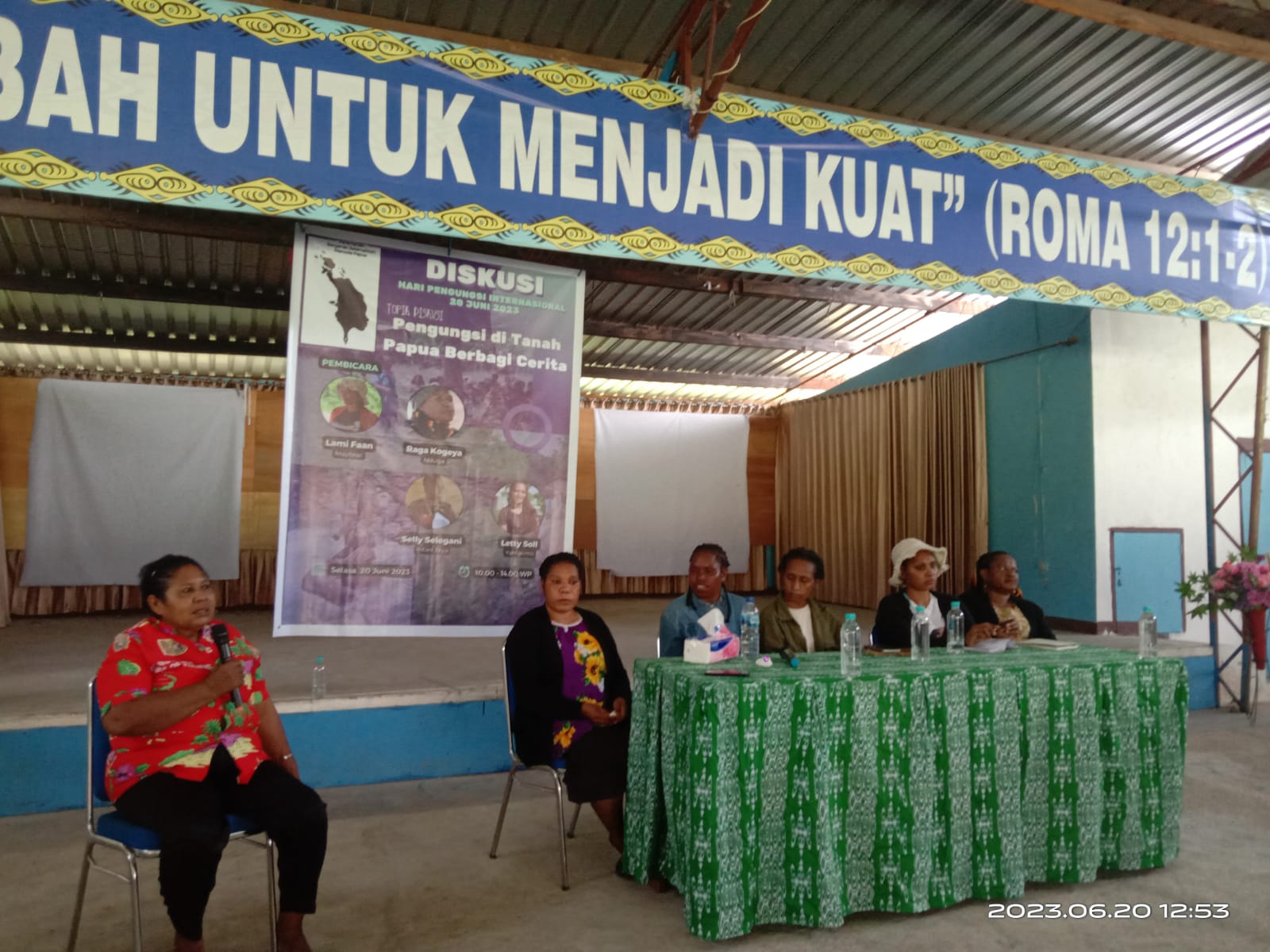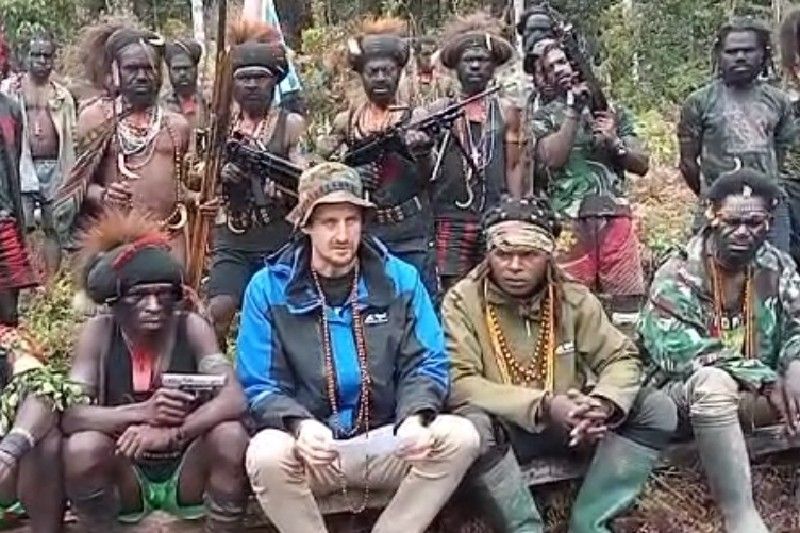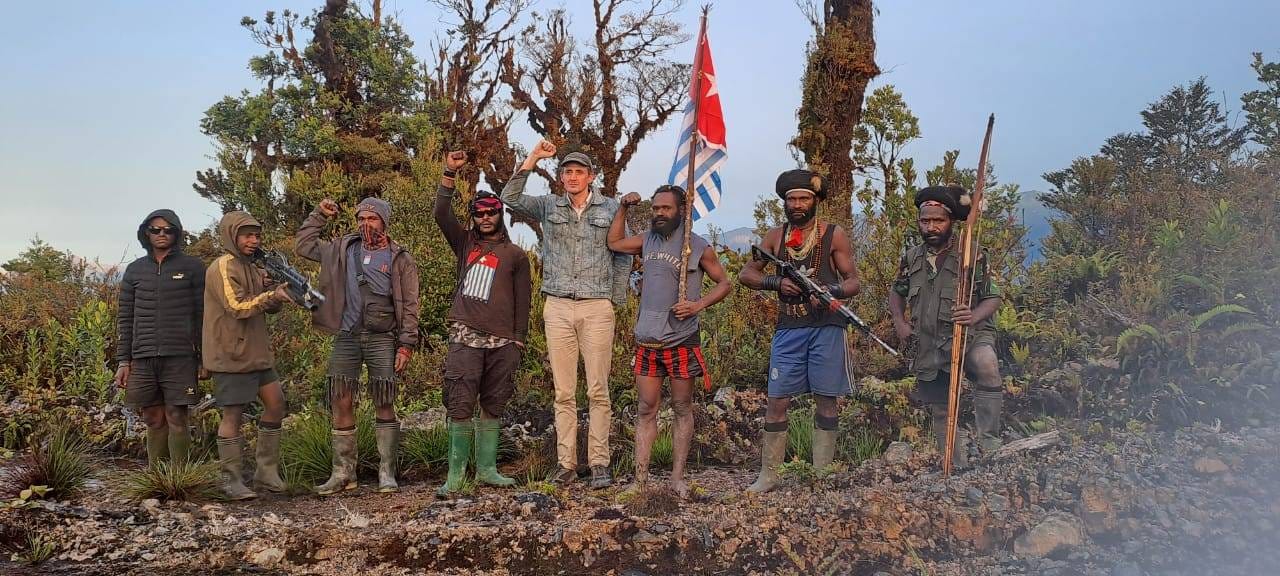
Jakarta, Jubi – Space for freedom of expression, especially for those who want to campaign for the right to self-determination or separatist issues in Papua, is deliberately limited. As a result all expression related to it is prohibited, repressed, or to be criminalized by application of the articles of treason.
This has direct implications for the restrictions on access to the press in and to Papua by foreign and local journalists, both for those who want to cover the issue and verify what is happening on the ground.
Executive Director of Amnesty International Indonesia Representative, Usman Hamid made the statement in a public discussion of Papua Side Event related to press freedom in West Papua at Century Park Hotel, Jakarta, Tuesday May 2 2017.
“The separatist discourse is one of the warmest topics in Indonesia, and of course Papua is in the spotlight. Indonesia has never compromised the issue since Soekarno era to post Soeharto. All related expressions are prohibited and repressed, or criminalized under the article,” said Usman Hamid.
He explained that Papua once had experienced a “spring” of freedom of expression in the era of Abdulrahman Wahid (Gusdur) government, but did not last long after Megawati served and followed by SBY.
In the era of Joko Widodo, there was a fresh breeze to open space for journalist’s access, but the reality on the field showed differently.
“Under Jokowi today, the reality in the field is different from the promises and statements. What is happening now is that “anyone van speaks about Papua as long as they don’t damage Indonesia reputation, ” said Usman.
On May 10, 2015 in an interview with Al Jazeera, President Joko Widodo once stated that he has ordered all parties in Papua, including the military and police to open access for foreign journalists, including removing special procedures or ‘clearing house’ (a special procedure of coverage for foreign journalists).
Restriction by Military territorial command
Usman noted there are some restrictions that repel freedom of expression in Papua. It takes form of access restrictions (media), content restrictions, blocking and manipulation of information/news.
“The restriction of the content is used as a method to neutralize social media activities that are considered harmful to the country. Website blocking occurred since SBY, there were four (websites) in his era and added about ten (websites) recently. Even the past few years began to develop groups that are believed to be ‘artificial military/intelligence’ that do cyber bully against the pro-self determination online activities,” he said.
After working hard, Usman claimed to have successfully discussed the matter with the Ministry of Communications and Information (Kominfo) until finally they acknowledge that the blocking was at the request of Indonesian military.
“In this case is the KODAM (Teritorial Military Command) in Papua. So it is not through court, or through other legal mechanisms to justify the blocking,” Usman said.
Particularly with regard to restrictions on Papua news portal suarapapua.com, Usman sees it as politically charged, “the most frequent visit to the website is from the Ministry of Defense, meaning they are monitoring the website constantly,” he said.
International pressure
Although restricted in such a way, the expression and news related to issues of self-determination and human rights violations in Papua are increasingly creative in foreign media.
David Robie, Director of Pacific Media Center (PMC) and university lecturer in Auckland, New Zealand at the Papua Side Event’s discussion showed several creative artistic campaigns through online media and social media on West Papua issues.
“The West Papua creative campaign is conducted by diasporas (Papuans living abroad) and solidarity in the Pacific. These brought a lot of information to the public abroad,” said the journalist who has been active across the globe for more than 40 years.
It makes international pressure increasing. Reporters Without Borders (RSF) on May 2 condemned the Indonesian government’s ‘double game’ attitude which on one hand hosted the WFPD 2017, but on the other hand continued violations of journalist’s freedom of rights in Papua.
The RSF’s criticism was related to the violence against Jubi journalist Yance Wenda by the Jayapura Resort Police on May 1.
“We strongly condemn police violence against Yance Wenda, and we call for investigations of the perpetrators and their superiors who have encouraged the brutality, and brought the case to justice,” said Benjamin Ismaïl, head of the RSF Asia-Pacific.(*)
Reporter : Zely Ariane
















